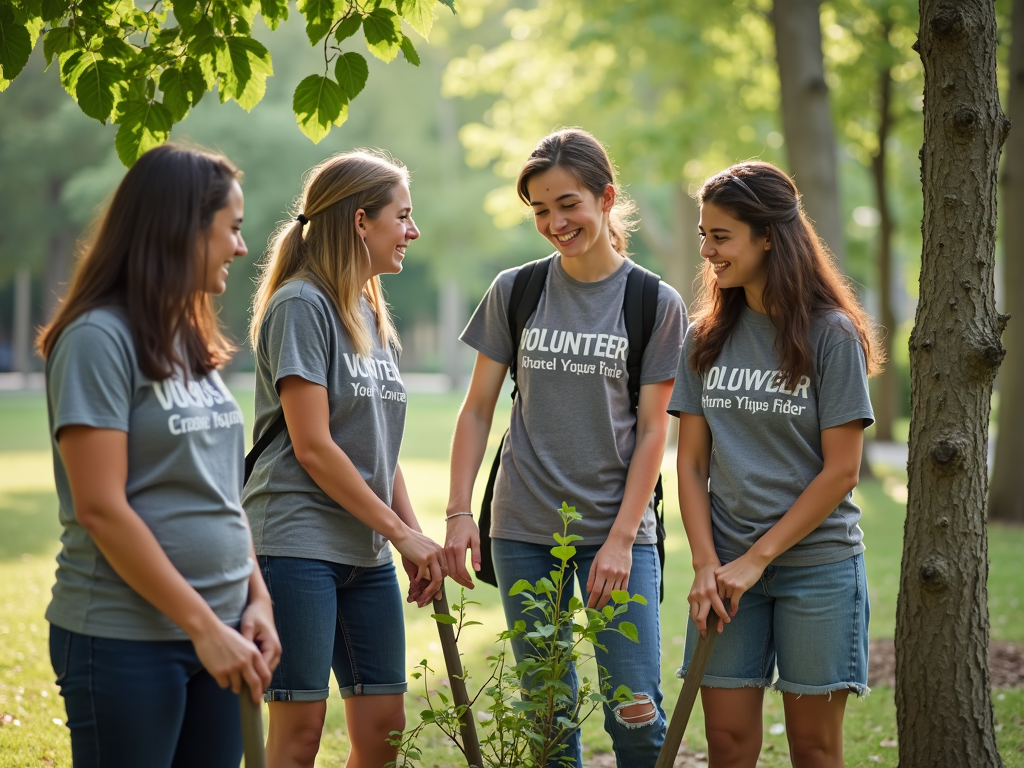A Beginner’s Guide to Advocacy for Teens
By , April 28, 2025
Advocacy is a powerful tool for change, and teens can play a significant role in making a difference in their communities and the world. This guide is designed to help young people understand what advocacy is, why it matters, and how they can get involved. Whether you're passionate about environmental issues, social justice, or any other cause, this guide will provide you with the knowledge and tools you need to start your advocacy journey.
What is Advocacy?
Advocacy is the act of supporting a cause or proposal. It involves speaking up for what you believe in and working to bring about change. Advocacy can take many forms, from writing letters to elected officials to organizing protests or raising awareness through social media. The key is to use your voice and actions to influence decisions and policies that affect your community or the world at large.

Why is Advocacy Important?
Advocacy is important because it allows individuals and groups to have a say in the decisions that affect their lives. It can lead to positive changes in laws, policies, and social norms. For teens, advocacy is particularly empowering because it gives them a sense of agency and the opportunity to make a real impact. It also helps them develop important skills such as critical thinking, communication, and leadership.
How to Choose a Cause
Choosing a cause to advocate for can be overwhelming, but it's important to start with something you're passionate about. Think about the issues that matter most to you. Is it climate change, racial equality, mental health, or something else? Once you've identified your cause, do some research to understand the issue better and identify specific goals you want to achieve.

Steps to Get Started
-
Educate Yourself: Learn as much as you can about your chosen cause. Read books, articles, and reports, and talk to experts or people affected by the issue.
-
Find Your Voice: Decide how you want to advocate. Will you write letters, create art, organize events, or use social media?
-
Build a Community: Connect with others who share your passion. Join or start a club, attend meetings, or participate in online forums.
-
Take Action: Start small and build momentum. Organize a fundraiser, host a workshop, or launch a social media campaign.
-
Reflect and Adjust: Evaluate your efforts and adjust your strategy as needed. Advocacy is a learning process, and it's okay to make mistakes.
Examples of Successful Youth Advocacy Projects
-
Greta Thunberg and the Climate Strike Movement: Greta Thunberg, a Swedish teen, started a global movement by striking from school to protest climate change. Her actions inspired millions of young people to join the fight for environmental justice.
-
Malala Yousafzai and Girls' Education: Malala Yousafzai, a Pakistani activist, survived an assassination attempt by the Taliban and has since become a global advocate for girls' education. Her courage and determination have brought attention to the importance of education for all.
-
The Parkland Students and Gun Control: After the tragic shooting at Marjory Stoneman Douglas High School, a group of students became vocal advocates for gun control. Their efforts led to nationwide protests and legislative changes.
These examples show that teens can make a significant impact when they are passionate and persistent.

Overcoming Challenges
Advocacy can be challenging, especially for teens who may face skepticism or resistance from adults. It's important to stay resilient and remember that your voice matters. Here are some tips for overcoming common challenges:
-
Lack of Support: If you don't have support from your family or friends, look for mentors or organizations that can provide guidance and encouragement.
-
Fear of Public Speaking: If you're nervous about speaking in public, practice with a small group or record yourself to build confidence.
-
Time Management: Balancing advocacy with school and other responsibilities can be tough. Set realistic goals and prioritize your tasks.
The Power of Volunteer Work
Volunteer work is a crucial part of advocacy. It allows you to directly contribute to your cause and gain hands-on experience. Whether you're tutoring younger students, participating in a beach cleanup, or helping at a local shelter, volunteering can make a tangible difference. It also helps you build a network of like-minded individuals and gain valuable skills.

Benefits of Advocacy for Teens
Engaging in advocacy can have numerous benefits for teens, including:
-
Personal Growth: Advocacy helps you develop confidence, leadership skills, and a sense of purpose.
-
Community Impact: Your efforts can lead to real changes in your community, making it a better place for everyone.
-
Networking: You'll meet people who share your interests and can become lifelong friends or mentors.
-
College and Career Opportunities: Advocacy experience can enhance your college applications and resume, showing your commitment to making a difference.
Advocacy is a powerful way for teens to make a difference in the world. By choosing a cause you're passionate about, educating yourself, and taking action, you can create positive change. Remember, your voice matters, and your actions can inspire others to join you in your efforts.